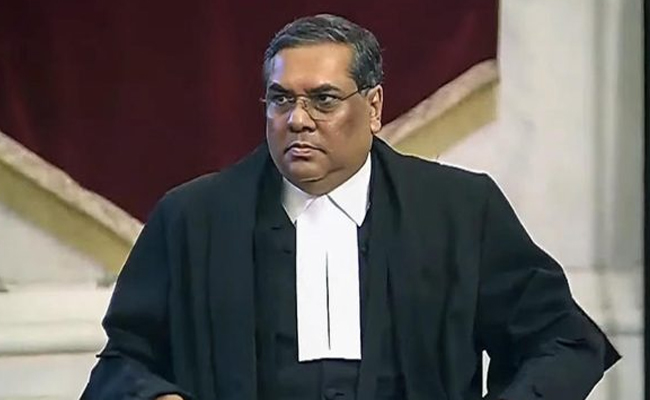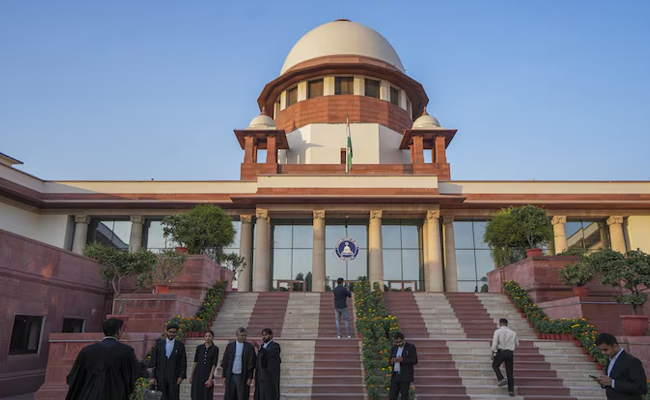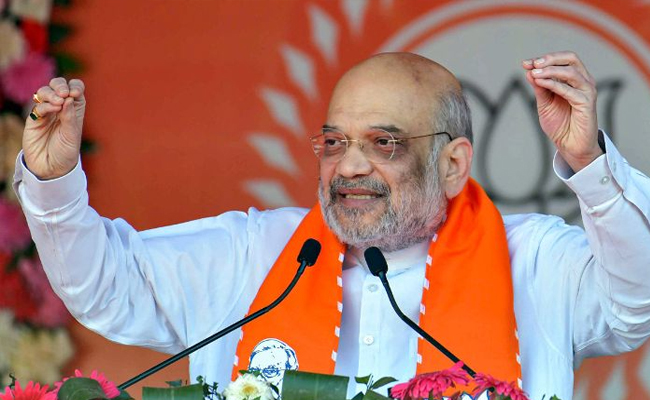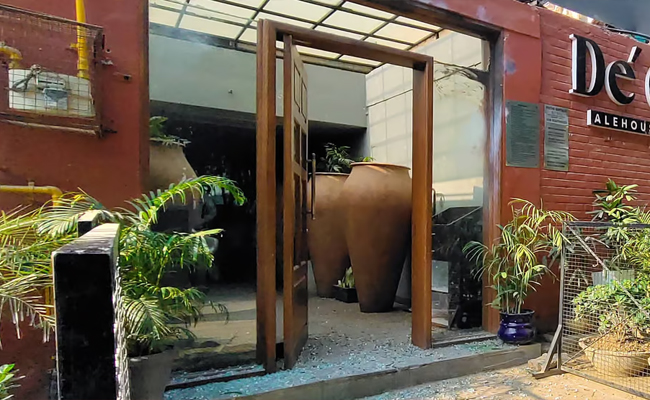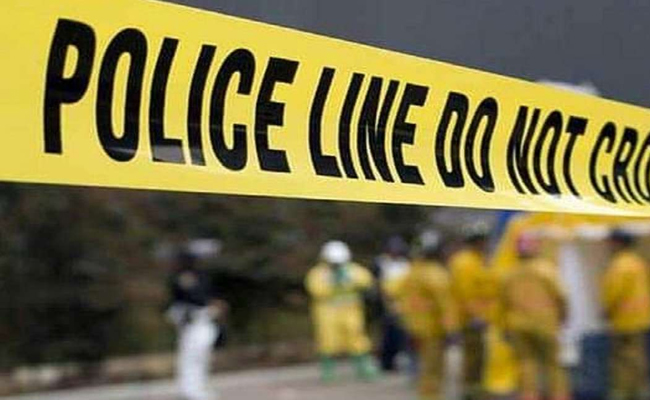New Delhi (PTI): Chief Justice of India Sanjiv Khanna on Tuesday said India has emerged as a vibrant democracy and a geopolitical leader, and the Constitution of the country has helped in this transformation.
India has had a transformative journey from a nation, which under the aftermath and horrors of partition saw widespread illiteracy, poverty, lack of robust democratic system of checks and balances, to one which has now become a self-assured leader, the CJI said.
"But at the back of it is the Constitution of India, which has helped this transformation. It is today a way of life that has to be lived up to," Justice Khanna said, while speaking at the Constitution Day function organised by the Supreme Court Bar Association (SCBA) at the apex court.
Since 2015, November 26 is observed as Constitution Day to commemorate the adoption of the Constitution of India by the Constituent Assembly in 1949. Earlier, the day was observed as Law Day.
Attorney General R Venkataramani, SCBA president and senior advocate Kapil Sibal also addressed the gathering.
In his address, Justice Khanna highlighted the importance and contribution of the Bar and said, "We often refer to the judiciary as persons in robes, that is, the judges, but judiciary equally represents the Bar".
"I cannot visualise the judiciary where the members of the Bar are not a part and parcel of it. You are as much part of the judiciary as the judges," he said.
The CJI said he was a member of the Bar from 1983 to 2005, when he got elevated as a judge, and his tenure as a member of the Bar is longer than his tenure as a judge.
"Judges come from the Bar and go back to the Bar. We belong to the Bar. The better the Bar, the better the judges," he said.
Justice Khanna said the Supreme Court has had a very strong and good legacy and there are decisions right from environmental law, privacy laws, fundamental rights to the basic structure doctrine.
"Many of these decisions, I do not think would have been possible without the contribution and efforts of the member of the Bar," he said.
Justice Khanna said since he has taken over as the CJI, he has made various attempts to look into the issues and problems faced by Bar members.
He referred to the steps taken, including setting up notice boards outside the courtrooms where physical cause list is shown and improving the Wi-Fi services in the top court.
"I have one request to make and I hope it will be taken in the right spirit. I have been repeatedly getting requests for re-circulation of letters of adjournment. I have looked into the data," Justice Khanna said while pointing out that the data showed there were about 9,000 to 10,000 applications or letters for adjournments being circulated every three months.
"So, it is not going to be possible for us to go back to the earlier system. Whatever system we have now adopted, we can, if you come up with some suggestions for improvements, look into it, but going back to the earlier system may be counter-productive," he said.
The CJI said the apex court received about 1,400 applications in the new system in the last 11 months.
"You can see the difference. From 100 applications a day to about 150 applications a month. That's a huge change and let us, therefore, go with the right spirit," he said.
Justice Khanna said today is the day to introspect, to look into and assess the strong points and weaknesses.
"As the Attorney General has rightly pointed out, it is a day when we look at the scorecard. We don't think the scorecard is blank. We have good scores but there are issues which we have to tackle. And let us unifiedly tackle those issues with the members of the Bar and the judiciary both contributing to this...," he said.
Let the Truth be known. If you read VB and like VB, please be a VB Supporter and Help us deliver the Truth to one and all.
New Delhi (PTI): The Supreme Court on Tuesday dismissed a petition seeking to revert to ballot paper voting in elections in the country.
"What happens is, when you win the election, EVMs (electronic voting machine) are not tampered. When you lose the election, EVMs are tampered (with)," remarked a bench of Justices Vikram Nath and P B Varale.
Apart from ballot paper voting, the plea sought several directions including a directive to the Election Commission to disqualify candidates for a minimum of five years if found guilty of distributing money, liquor or other material inducement to the voters during polls.
When petitioner-in-person K A Paul said he filed the PIL, the bench said, "You have interesting PILs. How do you get these brilliant ideas?".
The petitioner said he is the president of an organisation which has rescued over three lakh orphans and 40 lakh widows.
"Why are you getting into this political arena? Your area of work is very different," the bench retorted.
After Paul revealed he had been to over 150 countries, the bench asked him whether each of the nations had ballot paper voting or used electronic voting.
The petitioner said foreign countries had adopted ballot paper voting and India should follow suit.
"Why you don't want to be different from the rest of the world?" asked the bench.
There was corruption and this year (2024) in June, the Election Commission announced they had seized Rs 9,000 crore, Paul responded.
"But how does that make your relief which you are claiming here relevant?" asked the bench, adding "if you shift back to physical ballot, will there be no corruption?".
Paul claimed CEO and co-founder of Tesla, Elon Musk, stated that EVMs could be tampered with and added TDP chief N Chandrababu Naidu, the current chief minister of Andhra Pradesh, and former state chief minister Y S Jagan Mohan Reddy had claimed EVMs could be tampered with.
"When Chandrababu Naidu lost, he said EVMs can be tampered with. Now this time, Jagan Mohan Reddy lost, he said EVMs can be tampered with," noted the bench.
When the petitioner said everybody knew money was distributed in elections, the bench remarked, "We never received any money for any elections."
The petitioner said another prayer in his plea was the formulation of a comprehensive framework to regulate the use of money and liquor during election campaigns and ensuring such practices were prohibited and punishable under the law.
The plea further sought a direction to mandate an extensive voter education campaign to raise awareness and importance of informed decision making.
"Today, 32 per cent educated people are not casting their votes. What a tragedy. If democracy will be dying like this and we will not be able to do anything then what will happen in the years to come in future," the petitioner said.

